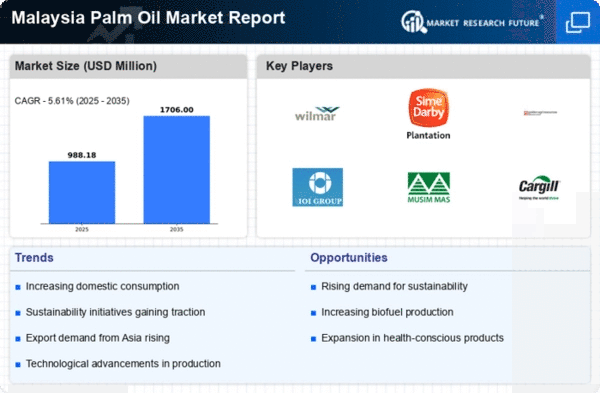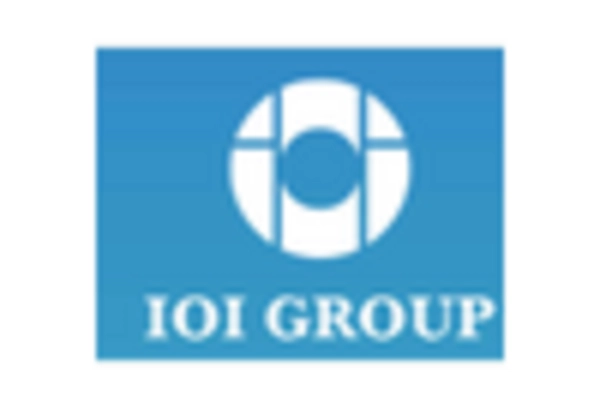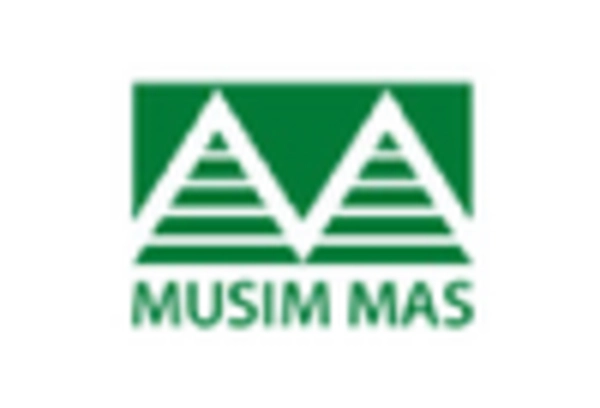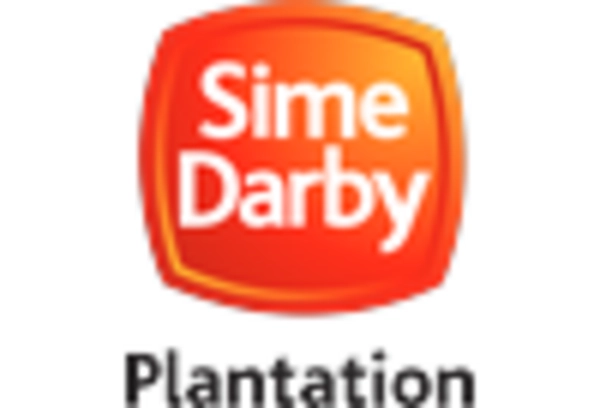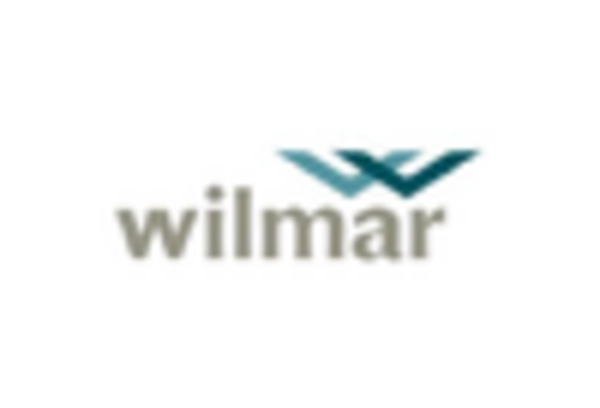Rising Demand for Edible Oils
The palm oil market in Malaysia is experiencing a notable increase in demand for edible oils, driven by changing consumer preferences and dietary habits. As health consciousness rises, consumers are seeking oils that are perceived as healthier alternatives. Palm oil, with its versatility and cost-effectiveness, is well-positioned to meet this demand. In 2025, the consumption of palm oil in Malaysia is projected to reach approximately 4.5 million metric tons, reflecting a growth of around 3% from the previous year. This trend indicates a robust market for palm oil, as it continues to be a staple in both domestic and international culinary applications. The palm oil market is thus likely to benefit from this sustained demand, which may further encourage local producers to enhance their production capabilities.
Government Policies and Support
The Malaysian government plays a crucial role in shaping the palm oil market through various policies and support mechanisms. Initiatives aimed at promoting sustainable palm oil production and enhancing the competitiveness of the palm oil market are currently in place. For instance, the Malaysian Palm Oil Certification Council (MPOCC) has established standards to ensure sustainable practices among producers. Additionally, the government has introduced incentives for smallholders to adopt sustainable farming techniques, which could potentially increase the overall production efficiency. In 2025, government support is expected to bolster the palm oil market, with an estimated 20% of palm oil produced adhering to sustainability certifications, thereby enhancing Malaysia's reputation in the global market.
Consumer Awareness and Ethical Sourcing
Consumer awareness regarding ethical sourcing and sustainability is increasingly influencing the palm oil market in Malaysia. As consumers become more informed about the environmental and social impacts of palm oil production, there is a growing demand for products that are certified sustainable. This shift in consumer behavior is prompting producers within the palm oil market to adopt more transparent and responsible sourcing practices. In 2025, it is estimated that around 30% of palm oil products in Malaysia will be sourced from certified sustainable plantations. This trend not only enhances the market's reputation but also aligns with global sustainability goals, potentially attracting a broader consumer base and increasing market share.
Technological Innovations in Production
Technological advancements are transforming the palm oil market in Malaysia, enhancing production efficiency and sustainability. Innovations such as precision agriculture, remote sensing, and automated harvesting are being adopted to optimize yield and reduce environmental impact. In 2025, it is anticipated that the implementation of these technologies could increase palm oil yields by up to 15%, thereby supporting the growing demand. Furthermore, these advancements may also contribute to reducing the carbon footprint associated with palm oil production. As the industry embraces these technologies, it is likely to improve its overall competitiveness and sustainability, positioning the palm oil market favorably in both domestic and international arenas.
Export Opportunities in Emerging Markets
The palm oil market in Malaysia is poised to capitalize on emerging export opportunities, particularly in regions such as Africa and the Middle East. As these markets experience economic growth and rising populations, the demand for palm oil is likely to increase. In 2025, Malaysia's palm oil exports are projected to reach approximately $10 billion, with a significant portion directed towards these emerging markets. This trend suggests that the palm oil market may see a diversification of its export base, reducing reliance on traditional markets. The ability to penetrate new markets could provide Malaysian producers with a competitive edge, potentially leading to increased profitability and market share.


